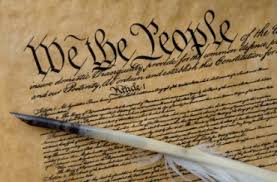
International Herald Tribune
March 3, 2009
WASHINGTON:
The secret legal opinions issued by Bush administration lawyers after the Sept. 11, 2001, attacks included assertions that the president could use the nation's military within the United States to combat people deemed as terrorists and to conduct raids without obtaining a search warrant.
That opinion was among nine that were disclosed publicly for the first time Monday by the Justice Department, in what the Obama administration portrayed as a step toward greater transparency. The opinions showed a broad interpretation of presidential authority, asserting as well that the president could unilaterally abrogate foreign treaties, deal with detainees suspected of terrorism while rejecting input from Congress and conduct a warrantless eavesdropping program.
Some of the legal positions had previously become known from statements made by Bush administration officials in response to court challenges and congressional inquiries. But the opinions provided the clearest illustration to date of the broad definition of presidential power that was approved by government lawyers, including John Yoo and Jay Bybee, in the months following the Sept. 11 attacks.
In a memorandum dated Jan. 15, 2009, just before President George W. Bush left office, a top Justice Department official wrote that the earlier memorandums had not been relied on since 2003. But the official, Stephen Bradbury, who headed the Office of Legal Counsel, said it was important to acknowledge in writing "the doubtful nature of these propositions," and he used the memo to formally repudiate the opinions.
Bradbury said that the earlier memorandums were the product of lawyers confronting "novel and complex questions in a time of great danger and under extraordinary time pressure."
The opinion authorizing the military to operate on domestic territory was dated Oct. 23, 2001, and written by Yoo, at the time a deputy assistant attorney general, and Robert Delahunty, a special counsel. It was directed to Alberto Gonzales, then the White House counsel, who had asked whether Bush could use the military to combat terrorist activities inside the United States.
"The law has recognized that force (including deadly force) may be legitimately used in self-defense," Yoo and Delahunty wrote to Gonzales. Any objections based on the prohibition against unreasonable searches in the Fourth Amendment to the Constitution would vanish, he said, because any privacy offense that comes with such a search would be less than any injury from deadly force.
Yoo and Delahunty also said in the Oct. 23 memorandum that "First Amendment speech and press rights may also be subordinated to the overriding need to wage war successfully." They added that the "current campaign against terrorism may require even broader exercises of federal power domestically."
Yoo said the Posse Comitatus Act, a statute first enacted in 1878 and since renewed, would also not present an obstacle to the use of the armed forces. The Posse Comitatus Act generally forbids the use of military forces in domestic law enforcement.
Yoo and Delahunty asserted that the act's prohibition against use of the military was only for law enforcement functions and that using soldiers against terrorist suspects would be a national security function.
Yoo, a law professor at the University of California, Berkeley, is widely known as the principal author of a 2002 memorandum that critics said authorized torture. The memorandum, signed by Bybee, was repudiated in 2004.
The memorandum issued by Bradbury in January appears to have been the Bush lawyers' last effort to reconcile their views with the wide-scale rejection by legal scholars and some Supreme Court opinions of the sweeping assertions of presidential authority made earlier by the Justice Department.
Walter Dellinger, a former head of the Office of Legal Counsel during the Clinton administration who was also a law professor at Duke University, said that Bradbury's memo "disclaiming the opinions of earlier Bush lawyers sets out in blunt detail how irresponsible those earlier opinions were." He said it was important that it was now widely recognized that the earlier assertions "that Congress had absolutely no role in these national security issues was contrary to constitutional text, historical practice and judicial precedent."
Attorney General Eric Holder Jr. said Monday morning before the release of the documents: "Too often over the past decade, the fight against terrorism has been viewed as a zero-sum battle with our civil liberties. Not only is that thought misguided, I fear that in actuality it does more harm than good."
Holder said that the memorandums were being released in light of the legitimate and substantial public interest.
One of the opinions, issued in March 2002, suggests that Congress lacks any power to limit a president's authority to transfer detainees to other countries. Other memorandums say that Congress has no authority to intervene in the president's determination of the treatment of detainees, a proposition that has since been invalidated by the Supreme Court.
Bradbury's memo repudiating these views said that it was "not sustainable" to argue that the president's power as commander in chief "precludes Congress from enacting any legislation concerning the detention, interrogation, prosecution and transfer of enemy combatants."

